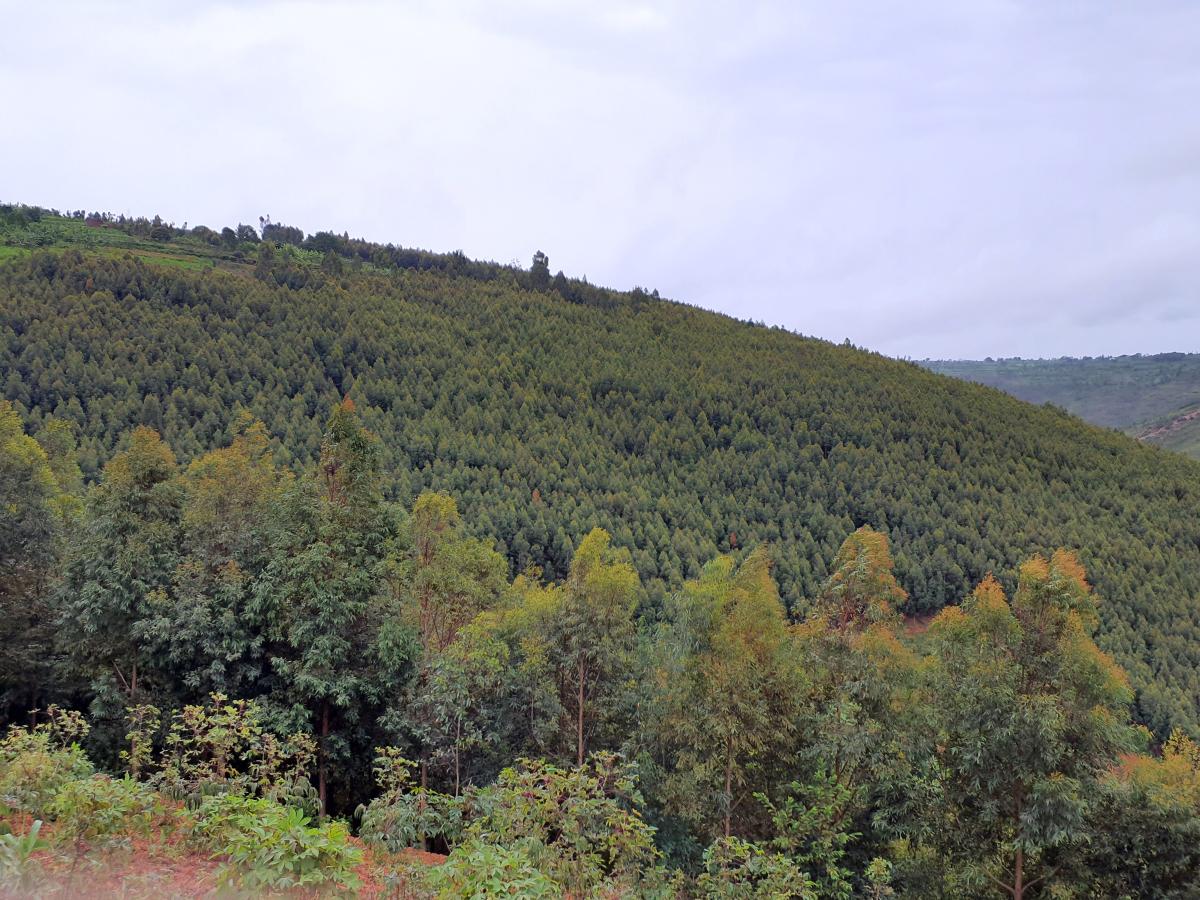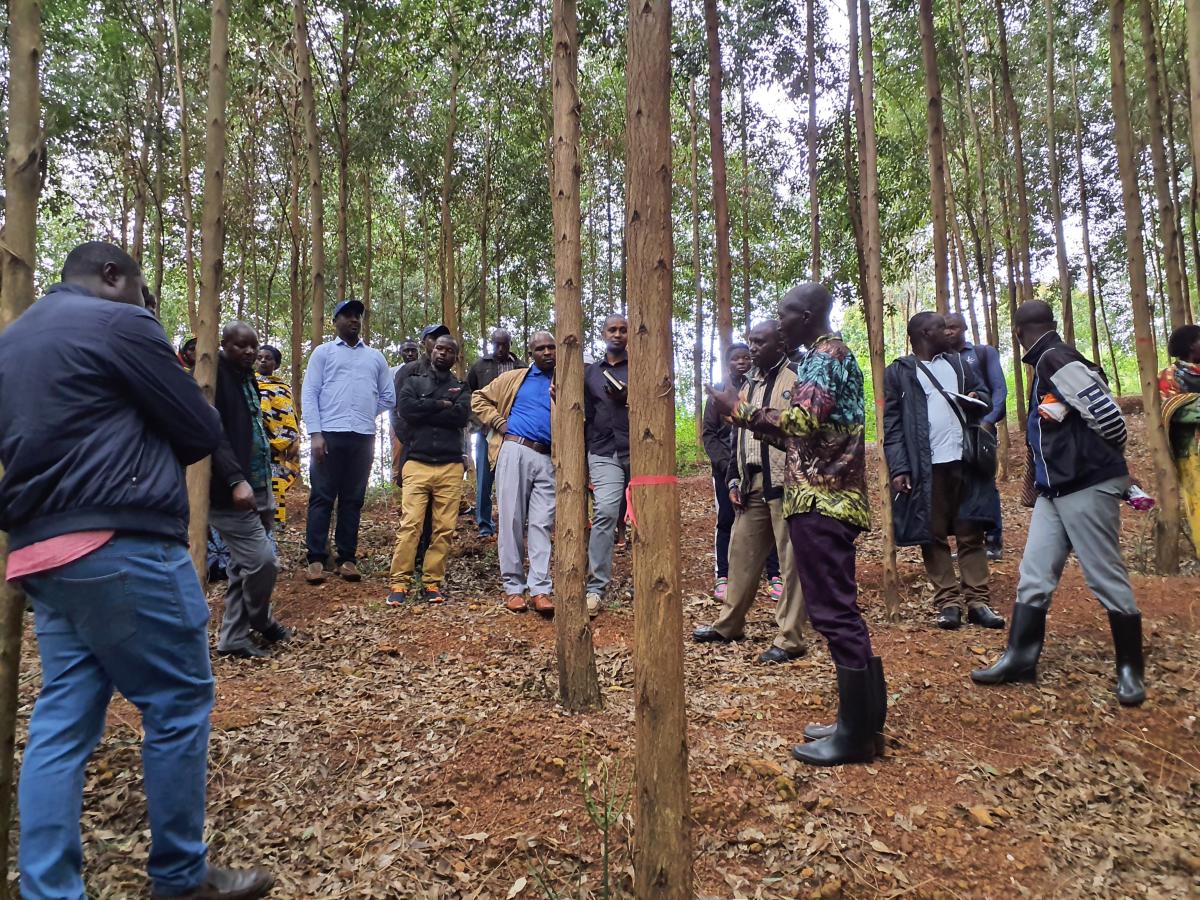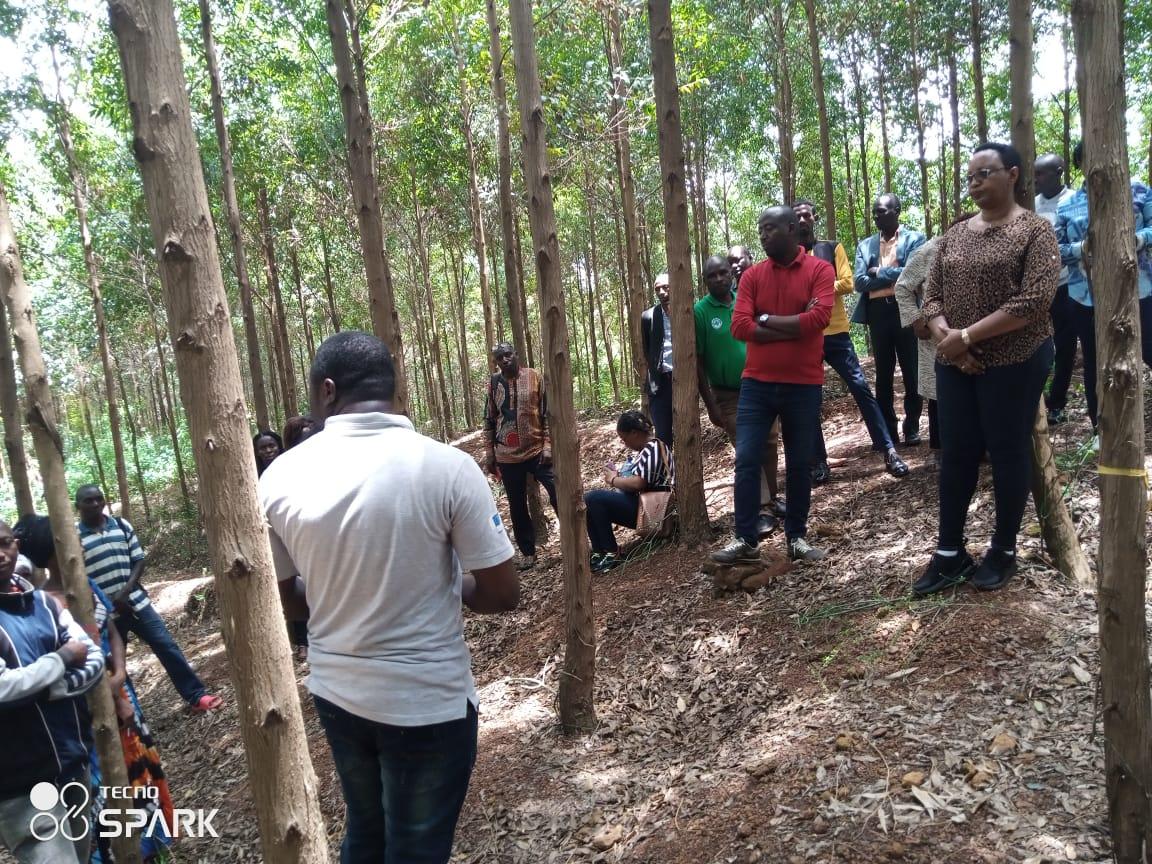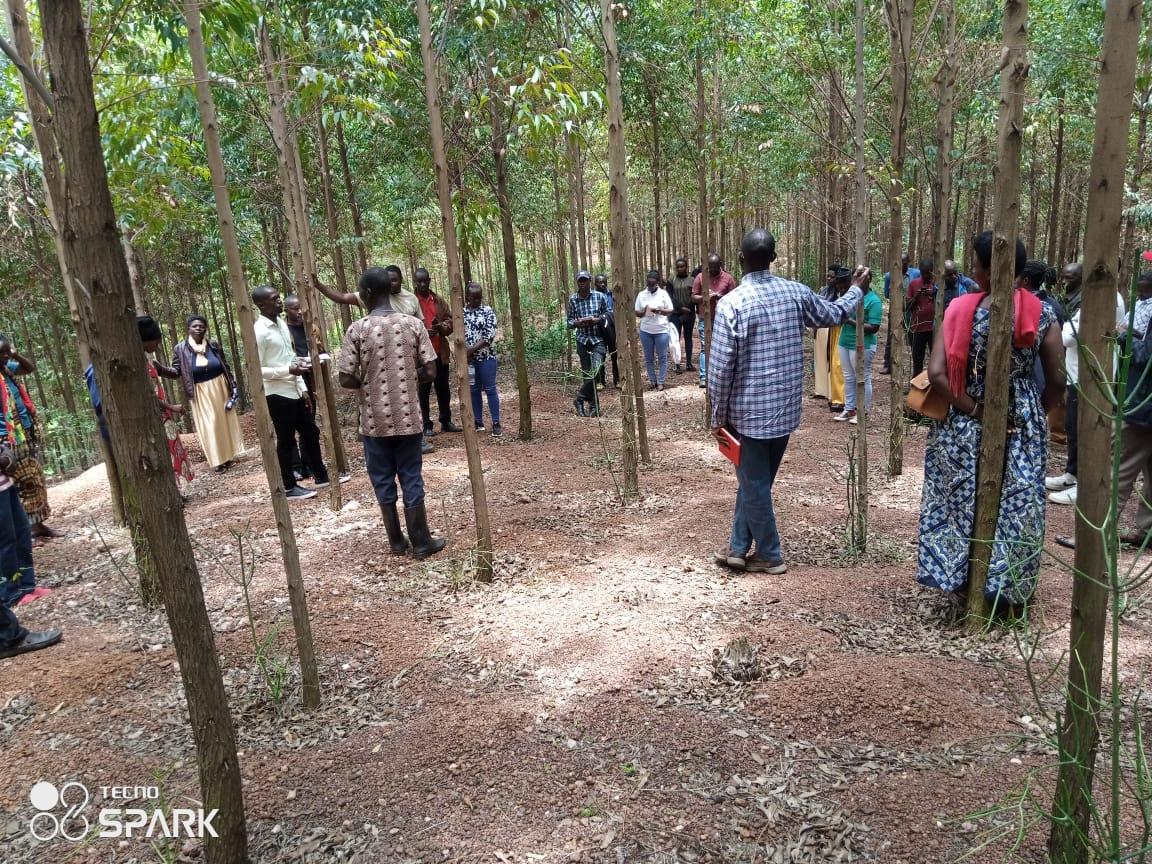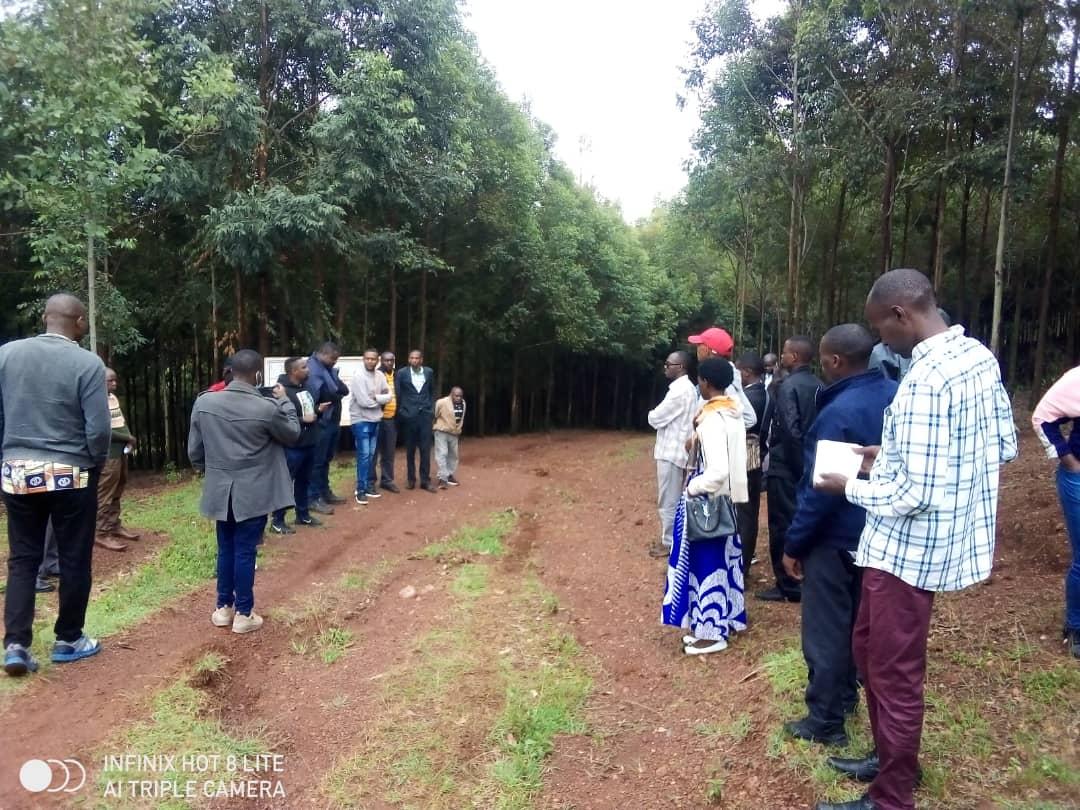Rwanda: Raise awareness on PFMU approach for improving private forest productivity in the Eastern Province
Today, Rwanda is striving to build
resiliency to Climate change through increasing and maintaining achieved forest
cover of 30.4% and promotion of sustainable forest management with ensured impact to climate change effects and provision of forest goods and services for
sustainable development for the country. TREPA (Transforming Eastern Province through Adaptation) project is one of the country efforts
financed by Green Climate Fund (GCF) to restore degraded lands through forests
and agroforestry landscapes restoration in all 7 Districts of the Eastern
Province so as to build resilience of Rwandan Eastern
Province community to climate change impacts. In 6-years (2021-2027), TREPA
Project will support restoration of around 60,000 ha of degraded landscapes with 6,545
ha of small-holder private woodlots.
To achieve a such transformation change in Eastern province, TREPA plans
to use Private Forest Management Unit (PFMU) approach, an approach that
consists of consolidating degraded private forests into one unity(20-100ha) to
be managed by the cooperative of forest owners according to elaborated
simplified forest management plan (SFMP). The Forest Management Unit (FMU)
approach is recommended by the forest policy action (NFP, 2018) and the
National Strategy for Transformation (NST1; 2017-2024) to improve forestry
sector performance towards sustainable forest management. This approach was
piloted in Rwamagana, Gicumbi, Gakenke and Rulindo districts through the
support of the former Belgian funded FMBE project (2017-2021) and has achieved impressive
success. To this end, 18 PFMUs that count about 890 ha were established and are
well managed by formed cooperatives to produce goods and ecological services.
In environment protection perspective, restored PFMUs are contributing to
the environment protection through direct effects to soil erosion, water
catchment and climate regulation, and CO2 sequestration. It is expected an improve productivity of 13 m3/ha/year in
restored PFMUs and an increased (10 times) carbon sequestration over the next
20 years (1.078.569 tons of CO2 compared
to only 174.597 tons in business as usual-BAU).
In that context of implementing TREPA
project, Enabel in collaboration with Rwanda Forestry Authority (RFA) and other
project implementers such as IUCN, ICRAF, CordAid and World Vision, is
organizing a study tour for new PFMU cooperative leaders to learn from the
successful PFMU sites as part of awareness. The study tour is taking place in PFMU
Cooperative (KOTABB and KOTIGA) located respectively in Fumbwe and Gahengeri Sectors of Rwamagana
District. The PFMUs have been established in planting season 2018/2019 and are
about the first cutting.
At Fumbwe and Gahengeri PFMU sites,
Community Leaders from newly mapped 46 PFMUs sites that correspond to 46
pre-cooperative committees from seven districts of Eastern Province observe and
exchange with their colleagues PFMU practitioners (KOTABB and KOTIGA PFMU
Cooperative leaders) of Rwamagana District. In this tour, PFMU cooperative
leaders are accompanied by their local authorities and technicians including
Cell Officer, Sector executive Secretary and Sector Forest Officers, V/C/Mayor
in Charge of economic Affairs, District Forest Officers, Staff in charge of Cooperative at district level to learn
together on the PFMU approach.
During the study tour, PFMU cooperative
leaders described to their colleagues the journey undertaken in PFMU
establishment till the current status and highlighted faced challenges and key
points to be taken into consideration to succeed in new PFMU establishment. On
the other hand, Rwamagana local leaders and technicians informed the
participants especially their counterparts the role played by local authorities
to get PFMU approach adopted by forest owners.
Participants from TREPA intervention
areas have been impressed and motivated by seeing such consolidated private
forests, productive plantations
of
Eucalyptus
spp (never seen in their areas) that are growing well and providing important
ecosystem functions in their 4 years of establishment. Observed current status
of established PFMU and testimonials given by their colleagues forest
practitioners, most importantly, the regret of some farmers who refused to join
approach, have impressed more. The PFMU leaders and authorities from
TREPA intervention areas show more interest in PFMU and commit to change their
working mode from business as usual to sustainable forest management through
running this PFMU approach.
Generally, PFMU leaders, authorities
and technicians from TREPA intervention areas have seen that it is possible to
have a well consolidated forest, to transform degraded forest into productive
one and that nothing is impossible for committed and working together people.
From that position, they committee to run and valorize this PFMU approach
together since they have clearly seen and understood all processes behind PFMU
establishment.
Latest news from this project
No news
